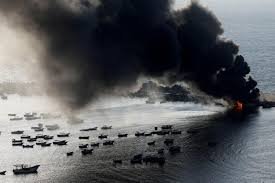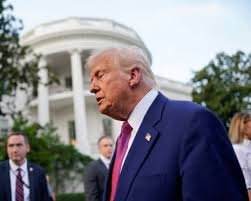Iran and Israel War: Rising Tensions and the Risk of Direct Conflict
Introduction
For decades, Iran and Israel have been locked in a dangerous rivalry across the Middle East. While they have not fought a direct war, tensions have escalated sharply in recent years. With growing military actions, cyberattacks, and political threats, the risk of a full-scale war between the two nations is more real than ever.
Background of the Conflict
The hostility between Iran and Israel began after Iran’s 1979 Islamic Revolution. The new Iranian regime refused to recognize Israel as a legitimate state and began supporting militant groups that oppose Israel, such as 
Israel, in return, considers Iran its biggest security threat due to Iran’s nuclear program, its military presence in Syria, and its support for anti-Israel groups.
In recent years, the conflict has intensified in several ways:
-
Military Strikes: Israel has carried out hundreds of airstrikes in Syria targeting Iranian weapons shipments and bases.
-
Rocket Attacks: Iranian-backed Hezbollah in Lebanon and Islamic Jihad in Gaza have fired thousands of rockets at Israeli cities.
-
Cyber Warfare: Both sides have launched cyberattacks. Israel has hit Iran’s nuclear systems, while Iran has tried to attack Israeli infrastructure.
-
Assassinations: Several Iranian scientists and military leaders have been killed in mysterious attacks blamed on Israel.
-
Risk of Full-Scale War
So far, Iran and Israel have avoided direct war. But certain events could trigger it:
-
A major Israeli attack on Iran’s nuclear facilities.
-
An Iranian missile strike on Israeli territory.
-
A large-scale war with Hezbollah in Lebanon.
If direct war breaks out, it could spread across the Middle East. The U.S., Gulf Arab countries, and possibly Russia could become involved. Civilian casualties would likely be high, and regional stability would collapse
A key reason for the rising tension is Iran’s nuclear program. Iran insists it is for peaceful energy purposes. Israel and Western countries fear Iran is secretly trying to build a nuclear bomb.
Israel has said it will never allow Iran to obtain nuclear weapons and may take military action if diplomacy fails.
The international community, including the United Nations, the U.S., and the European Union, has urged both sides to avoid war. Some efforts have been made to revive the Iran nuclear deal (JCPOA), but progress has been slow.
Other countries in the region, such as Saudi Arabia and the UAE, are also concerned. While they are not allies of Israel, they also view Iran’s actions as a threat.
Donald Trump:

1.Withdrawal from the Iran Nuclear Deal (JCPOA)
In 2018, Trump unilaterally withdrew the U.S. from the Joint Comprehensive Plan of Action (JCPOA), the 2015 nuclear deal negotiated under Obama. This move:
-
Reimposed harsh sanctions on Iran.
-
Weakened Iran’s economy, contributing to its regional desperation and hard-line stance.
-
Was strongly supported by Israel, particularly by Prime Minister Benjamin Netanyahu, who viewed the deal as inadequate.
2. Maximum Pressure Campaign
Trump’s administration launched a “maximum pressure” campaign aimed at:
-
Severely limiting Iran’s oil exports and financial transactions.
-
Designating Iran’s Islamic Revolutionary Guard Corps (IRGC) as a terrorist organization.
-
This escalated U.S.-Iran tensions and fueled proxy conflicts involving Iran and its allies (e.g., Hezbollah, Hamas), which are also adversaries of Israel.
3. Support for Israel
Trump was one of the most pro-Israel U.S. presidents in modern history. Key actions include:
-
Recognizing Jerusalem as Israel’s capital.
-
Moving the U.S. embassy from Tel Aviv to Jerusalem.
-
Recognizing Israeli sovereignty over the Golan Heights.
-
Facilitating the Abraham Accords, normalizing relations between Israel and several Arab nations.
These steps:
-
Strengthened Israel diplomatically and militarily.
-
Further isolated Iran in the region.
-
May have contributed to Iran perceiving itself as encircled by enemies, deepening regional hostility.
4. Assassination of Qassem Soleimani
In January 2020, Trump ordered the assassination of IRGC General Qassem Soleimani, a key figure in Iran’s foreign military operations. This:
-
Brought the U.S. and Iran close to direct conflict.
-
Significantly escalated regional tensions, with reverberations in Israel-Iran proxy confrontations.
Conclusion
A direct war between Iran and Israel would be devastating for both countries and the wider Middle East. While both sides currently prefer indirect conflict, the risk of miscalculation is high. Without serious diplomatic efforts, the world may be inching closer to a major and dangerous war in the region.



